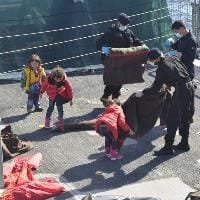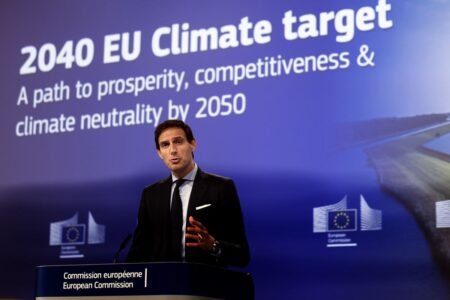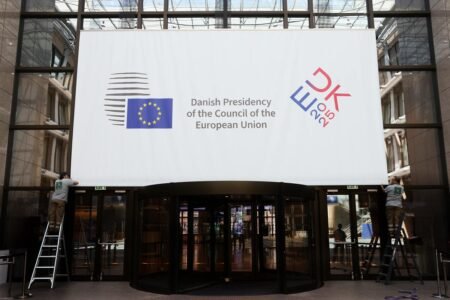(BRUSSELS) – The EU could pay financial support to Member States that accept transfers of refugees disembarking in their country, under plans outlined by the European Commission on Tuesday.
The plans, following a call by EU leaders at their June summit, are for the establishment of regional disembarkation arrangements with third countries, as well as ‘controlled centres’ and short-term measures to improve the processing of migrants being disembarked in the EU.
The EU executive foresees the regional disembarkation arrangements working in concert with the development of controlled centres, with the aim of ensuring ‘a truly shared regional responsibility’ in responding to ‘complex migration challenges’.
Financial support would be offered to volunteering EU Member States to cover infrastructure and operational costs, and to states that accept transfers of those disembarked.
European solutions on migration are the only solution, said Commissioner Dimitris Avramopoulos: “We are ready to support Member States and third countries in better cooperating on disembarkation of those rescued at sea. But for this to work immediately on the ground, we need to be united not just now, but also in the long run. We need to work towards sustainable solutions.”
The primary aim of the ‘controlled centres’ is to improve the process of distinguishing between individuals in need of international protection, and irregular migrants with no right to remain in the EU, while speeding up returns, says the Commission.
The centres would be managed by the host Member State with full support from the EU and EU Agencies and could have a temporary or ad-hoc nature depending on the location. The main features of such centres are:
- full operational support with disembarkation teams of European border guards, asylum experts, security screeners and return officers, and all costs covered by the EU budget;
- rapid, secure and effective processing that reduces the risk of secondary movements and accelerates the process to determine the status of the person concerned;
- full financial support to volunteering Member States to cover infrastructure and operational costs; as well as financial support to Member States accepting transfers of those disembarked (6,000 per person).
The Commission will also provide a central contact point to coordinate among Member States taking part in ‘solidarity efforts’ as an interim measure until a fully-fledged system can be established in the context of the ongoing Common European Asylum System reforms.
The ‘regional disembarkation arrangements’ would be developed in close cooperation with IOM and UNHCR and in partnership with third countries.
The objective is to provide quick and safe disembarkation on both sides of the Mediterranean of rescued people in line with international law, including the principle of non-refoulement, and a responsible post-disembarkation process.
The main features of regional disembarkation arrangements are:
- Clear rules for all: To reduce deaths at sea and ensure orderly and predictable disembarkation, all coastal states in the Mediterranean should be encouraged to establish search and rescue zones and Maritime Rescue Coordination Centres (MRCCs);
- Developed by the UNHCR and IOM who will help ensure those disembarked can receive protection if they are in need of it, including through resettlement schemes; or will be returned to their countries of origin if they are not, including through the assisted voluntary return and reintegration programmes run by the IOM;
- Partnerships on an equal footing: work with interested third countries will be brought forward on the basis of existing partnerships and offered support tailored to their specific political, security and socio-economic situation;
- No pull factors: resettlement possibilities will not be available to all disembarked persons in need of international protection and points of reception should be established as far away as possible from points of irregular departure;
- No detention, no camps: Regional disembarkation arrangements mean providing a set of established procedures and rules to ensure safe and orderly disembarkation and post-disembarkation processing in full respect of international law and human rights;
- EU Financial and logistical support: The EU is ready to provide financial and operational support for disembarkation and post-disembarkation activities as well as for border management with equipment, training and other forms of support.
Non-paper on ‘controlled centres’ in the EU
Non-paper on regional disembarkation arrangements








